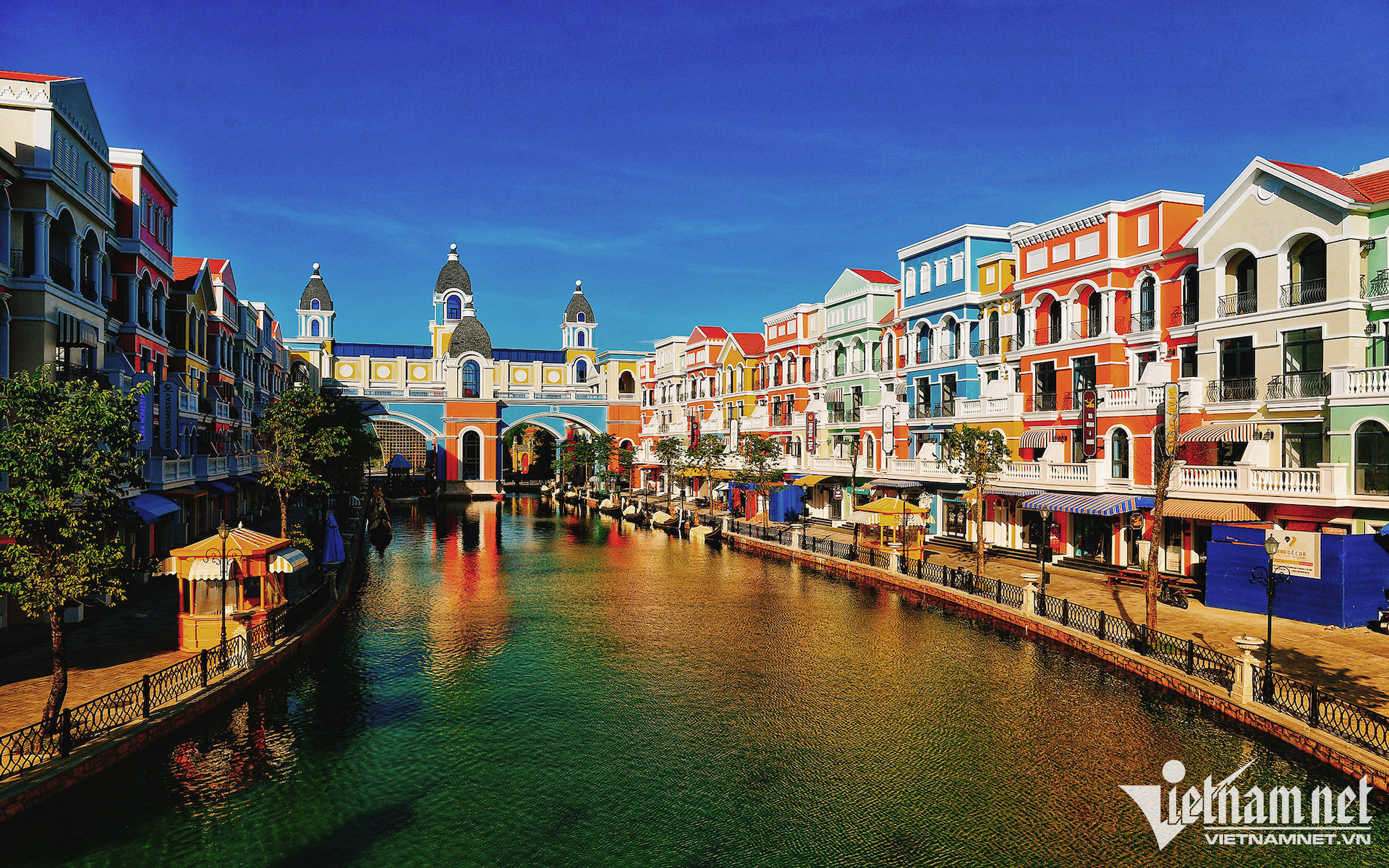
In October 2004, the then-Prime Minister Phan Van Khai approved a master plan on developing Phu Quoc Island. The city has made great strides since then.
Tran Dinh Thien, former head of the Vietnam Economics Institute, analyses the success story of Phu Quoc over the last 20 years below:
Phu Quoc's rise
The population of Phu Quoc is now 149,000, nearly double that in 2024.
The revenue from accommodation and tourism services, the sector that makes up 70 percent of production value, generating jobs for 70 percent of Phu Quoc’s people, reached VND6.848 trillion in 2023, up 49.17 times over 2004 (VND136.5 billion). The production value growth rate is 38 percent per annum, or six times higher than the country’s average level.
The growth rate in number of travelers and tourism revenue of Phu Quoc was 20-30 percent per annum in the 2011-2023 period. The island received 5.4 million people last year.
The income of Phu Quoc’s workers is about $5,000 per annum, or 35-40 percent higher than the country’s average level.
The total goods retail turnover grows by 19.59 percent every year, double the country’s average level.
The budget collections have increased rapidly. In 2004, the state collection was only VND38.59 billion, with receipts not high enough to cover expenses. The figure was VND7.812 trillion in 2023, or 113 times higher than in 2004.
In the last five years, Phu Quoc has not needed money from the state budget, and it even pays to the provincial budget. The budget collections of Phu Quoc in recent years have been the same as neighboring provinces.
The figures show the strong rise of Phu Quoc and its great achievements over the last two decades, especially after 2010. These are the results of efforts to maintain a growth rate higher than the average growth rate of the province, the Mekong River Delta and the entire country.
“Exceptional’, ‘beyond the frame’ way of thinking
Phu Quoc just needed two decades to develop from a poor island district, far from large development centers such as Hanoi, HCM City and Can Tho, into a modern tourism city.
Phu Quoc has been pursuing an ‘exceptional’ and ‘specific’ development trajectory, instead of ‘subsequent urbanization’. From a purely agricultural district with a fifth-class town, Phu Quoc moved to a second-class town in 2014 following the Prime Minister’s Decision 1676.
The approach of building Phu Quoc into a ‘special administrative and economic unit’, plus the long-term efforts by Kien Giang, have helped the island make great strides in its development.
Business growth
A report found that there are 4,404 enterprises in the city with registered capital of VND142 trillion, which is 17 times and 383 times higher, respectively, than the number of enterprises and amount of capital in 2004.
The Phu Quoc Economic Zone has attracted 321 investment projects with a land use area of 10,652 hectares and total registered capital of VND412 trillion. The total structural construction capital of the city has been increasing steadily year after year, from VND310 billion in 2004 to VND21.615 trillion in 2023 (up 64 times).
The 2022 White Book about Vietnam’s businesses showed that Phu Quoc ranks above 23 provinces in the number of businesses. The enterprises in Phu Quoc outperform other provinces thanks to the high presence of ‘eagles’ (eagle is the word used by Vietnamese to talk about ‘big investors’), such as Vingroup and Sun Group, which have poured tens of trillions of dong worth of capital into projects there.
Phu Quoc can attract many leading enterprises in urban and tourism development, while very few localities in Vietnam can invite such giant investors. The presence of ‘eagles’ in Phu Quoc shows the differentiation, attractiveness and high-level development of the island.
The majority of investors in Phu Quoc so far are Vietnamese owned enterprises. Phu Quoc is attractive to Vietnamese investors, with large corporations acting as pillars for local economic growth.
Investors in Phu Quoc have been developed many projects, especially tourism infrastructure (hotels, resorts, amusement parks).
Many tourism projects have regional and international stature, such as the Hon Thom cable car system, Safari semi-wild zoo, GrandWorld entertainment complex, and Sun World Hon Thom Nature Park entertainment area, with many famous hotel brands such as Park Hyatt, Intercontinental, Novotel, and Accor.
Lan Anh